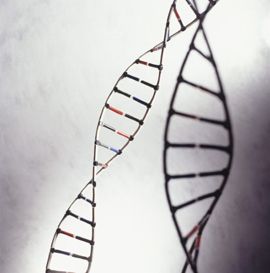So much for “Junk” DNA being a load of old rubbish!
UC San Francisco researchers have taken a major step toward understanding the function of the tens of thousands of human genes that do not code for proteins, a phenomenon considered one of the key remaining mysteries of the human genome. New findings, which focused on the roles of these genes in human cancer cells, suggest a possible new strategy for targeting the disease.
In recent years, researchers have recognized that non-coding regions of the genome—long dismissed as “junk DNA”—are actually key players in cell biology, development, and disease. However, the vast majority of these regions have not yet been extensively studied.
Now UCSF scientists have developed an approach to studying the function of genes that produce RNA transcripts but no protein – called long non-coding RNAs (lncRNAs)—at an unprecedented scale. In a proof of principle experiment, the researchers set out to look for common lncRNAs required for the growth of many different types of cancer cells. To their surprise, they found that each cancer cell line they tested relied upon a different set of IncRNAs for growth and survival, suggesting that these molecules might be promising targets for precision cancer therapies.
